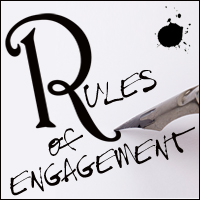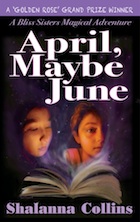.
 A blog for fiction writers and impending writers. An editor’s perspective.
A blog for fiction writers and impending writers. An editor’s perspective.
• Next post • Previous post • Index
Action/Reaction.
Sir Isaac Newton should have been a fiction writer. When one of the most famous minds of the 15th century proposed his 3rd Law of Motion; that For every action force there is an equal and opposite reaction force, he may as well have been speaking at a writer’s workshop, wearing corduroy and sipping a cappuccino.
Because old Fig was absolutely correct. This rule applies not only to the nature of the universe, but to the nature of literature as well. Because for every action one writes in fiction, one should create a reaction. Conversely, for every reaction one writes, there must be a new action (or a re-reaction.)
We shall make that Rule #10: In fiction, for every action, provide a reaction.
Life’s like that. Reality’s like that. Fiction’s like that too—at least good fiction. Why? Because that’s the way our brain registers life.
An example:
Action: Jason pulled a pistol and pointed the weapon quite calmly at his wife’s head.
Reaction: Martha screamed.
However, let’s back step a bit:
Action: Martha stormed into the den, where her husband sat, writing a letter. “You’re an evil, conniving bastard,” she screamed, raising a kitchen knife. “I’m going to kill you!”
Reaction: Jason pulled a pistol and pointed the weapon calmly at his wife’s head.
And again, another back step:
Action: Martha’s brother, Bob, a Morristown deputy sheriff, revealed on the phone that he had proof Jason murdered their mother to claim the insurance money. Bob told Martha not to “do anything stupid” until he got there.
Reaction: Martha stormed into the den. “You’re an evil, conniving bastard,” she screamed, raising the knife. “I’m going to kill you!”
One more hit, bartender:
Action: Martha’s ex-lover, Bruce, erroneously told Sheriff Bob that a surveillance camera had captured the image of Jason, killing his mother. (Although the man in the surveillance photo was really Phil, Jason’s long-missing twin brother.)
Reaction: Bob told Martha that he had proof it was Jason who murdered their mother to claim the insurance money.
See how this works? (The principle applies seamlessly as forward chronology as well.) An entire novel is essentially a ping-pong game of actions and reactions—each reaction also becoming an action in its own right.
A good novel is the literary perception of the Butterfly Effect—mathematician Edward Lorenz’s example of chaos theory—in which a small change (the air movement created by the flap of a butterfly’s wing) could conceivably create a much larger phenomenon; theoretically in Lorenz’s case a hurricane. Filmdom is filled with such examples (ironically including the time-traveling head-scratcher The Butterfly Effect). Another nifty example is 2003’s John Cusack-starring film, Max. In Germany, a Jewish art dealer befriends a young, unpopular, confused artist named Adolf Hitler. A tenuous friendship blossoms. Yet—sorry, a spoiler!—when Max is indiscriminately killed by thugs, an enraged Adolf Hitler forgets his budding art career and becomes—well, y’know. In terms of dramatic impact, a very good example. A terrific film.
After all, who are we as writers, if not those who can ask; “What if?”
Breaking the Rules (Sort of)
Simple? Ah, but what about this scenario:
Action: “Mrs. Tummins,” said the brain surgeon, “your loving Harold, your husband of 21 years, the father of your children, the keeper of the magic key, did not survive the operation.”
Reaction: “Thank you, doctor,” replied Mrs. Tummins calmly. She walked outside without another word, across the street to the Nuvo Café and ordered espresso and a bagel. She began flirting shamelessly with the waiter.
A valid reaction? On the surface, it’s an avoidance. Mrs. Tummins’ sudden, nonchalant detachment provides us with a delicious response—but not quite the reaction anyone might expect. If readers have already been introduced to Mrs. T as a rational, loving wife, then—for the moment—the writer’s got us hooked. But a writer has to keep us on that hook. We’re looking for an ultimate reaction. And if Mrs. T’s response isn’t ultimately revealed… then it becomes a bit of negligent plotting. (And, no—it’s not up to a reader to “determine” her rationale. That’s a cop out. It’s the writer’s job to divulge.) See: Rule #17: Don’t hide from your characters. (…coming soon.)
A sly writer may not reveal Mrs. Tummins’s inner truth until the next page or the next scene or even late in Act III—but her eventual reaction is crucial for the story. If Harold’s death proves unimportant to her, then why should it be important to us? So if Mrs. T’s reaction is never explained, her action remains an avoidance… and thus the action/reaction principle stalls. Miscue a few reactions as avoidances and the book may not ultimately ring true. Why? Characters can keep secrets from other characters, but the writer should not keep secrets—unless plot-essential and ultimately necessary—from the reader.
By the way, don’t confuse the action/reaction principle with Rule #8: Keep characters moving. (Although these two principles can work seamlessly together.) Tensing and relaxing the plot—that is, pushing characters tenaciously (inhaling) toward action, or retreating wearily (exhaling) from action—provides an overarching ebb and flow to dramatic impact—the calm before (and after) a storm. A good novel might alternately inhale and exhale once or twice each scene, or perhaps each subsequent chapter. (Tolstoy’s War and Peace for example. There’s war and then peace. They fight, they talk; they fight, they talk; they fight, they talk.)
Realize that the action/reaction principle can occur on the macro level (scene by scene) but can also function on micro levels; for instance, as immediate as alternating lines of a terse dialog—snap, snap, snap—fast and furious. One character shouts furiously and shakes his fists. The other walks away in a brooding funk, each action (or reaction) providing valuable dramatic impact and pushing or pulling the characters or the plot into deeper levels.
Both Rule #8 and Rule #10 are critically important to a novel’s success. No breathing, no reacting, and a novel will simply sit… like a lump, like a wet fuse, like a sleeping tiger, like an idling car awaiting a foot-stomp on the gas pedal. Remember, action/reaction need not be physical attributes—for instance, love found, love pondered, love lost, love rekindled, or an internal struggle with mental illness perhaps—each depiction of internal or external action followed by a reaction, continually, like the rise and fall of a butterfly’s wing, flapping furiously, anxiously anticipating that ultimate hurricane.
.
• Next post • Previous post • Index
.

 The Harbor being, of course, wherever our authors or their books are.
The Harbor being, of course, wherever our authors or their books are.